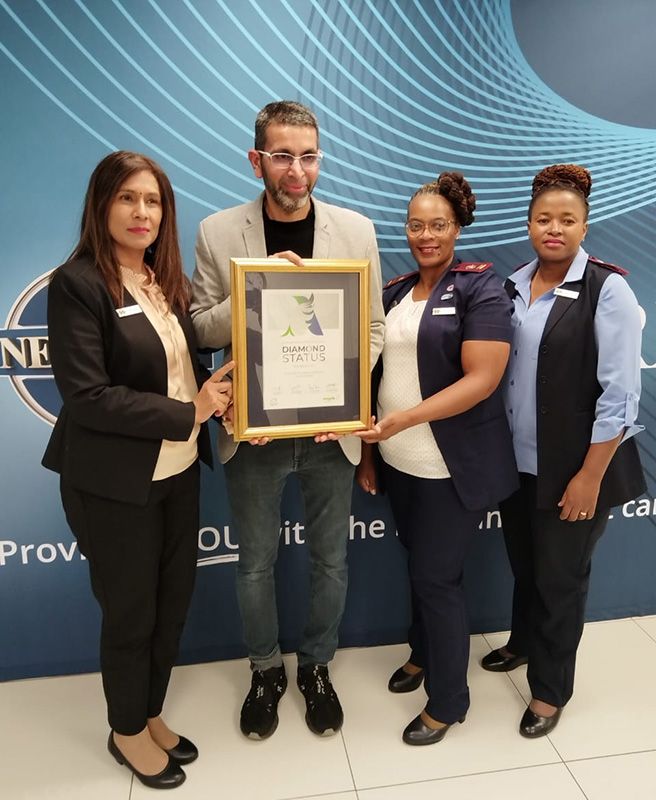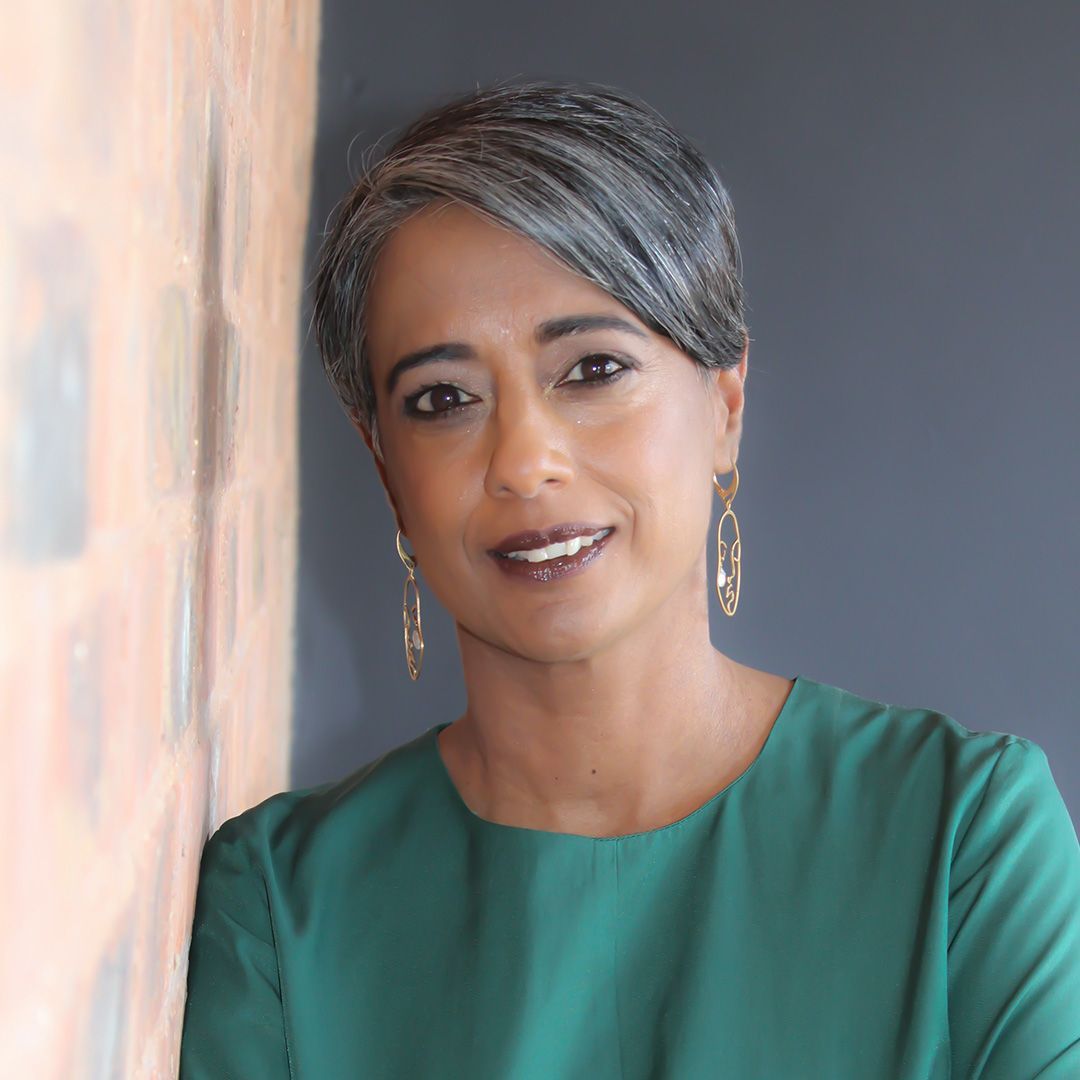Top global award for Netcare St Anne’s stroke care centre of excellence
Diamond status from World Stroke Organisation and Angels Initiative
The World Stroke Organisation (WSO) Angels Initiative has awarded Netcare St Anne’s Hospital top level Diamond status recognition for excellence in emergency stroke care for the first quarter of 2024.
“We are honoured to be part of the global community of stroke centres working every day to improve the quality of stroke treatment, with the ultimate aim of securing the safest, most appropriate care to promote the best possible outcome for each person presenting with stroke,” says Sharon Singh, hospital general manager of Netcare St Anne’s Hospital.
Lifesaving standards in stroke care
According to WSO Angels Initiative, worldwide every half hour a person who suffers a stroke and could have been saved, either passes away or suffers lifechanging brain injury, because they were not treated in a hospital that follows the internationally recognised criteria in stroke management.
Netcare St Anne’s Hospital, an accredited level 1 trauma centre, is the first Netcare hospital in KwaZulu-Natal to earn Diamond status and the only WSO Angels hospital award winner in the Msunduzi district. The Diamond WSO Angels award is the highest in the tiers that acknowledge hospitals meeting the WSO stroke criteria, focusing on optimal patient outcomes.

Teamwork and a passion for excellence in stroke care earned a Diamond WSO Angels Award for Netcare St Anne’s Hospital. Hospital general manager Sharon Singh is pictured with neurologist Dr Zaheer Sacoor who will attend the awards ceremony in Dubai later this year, unit manager of Netcare St Anne’s Hospital emergency department Sr Nobuhle Mhlongo and nursing services manager Sr Precious Shelembe.
“Hospitals recognised by WSO Angels Initiative are validated as equipped to provide the full spectrum of diagnostic and interventional services for the identification and treatment of stroke 24 hours a day according to the strict protocols required by the European Stroke Organisation Enhancing and Accelerating Stroke Treatment [ESO East] and WSO,” says Zasskia Wiese, Netcare’s national stroke programme manager.
To qualify for the awards, hospitals must register with and submit data to the RES-Q quality of stroke care registry, an initiative of the ESO East that now includes WSO and is the basis of the international awards evaluation criteria. This registry allows for international benchmarking and continuous improvement and monitoring to ensure consistency of quality stroke care.
Netcare St Anne’s Hospital resident doctor Dr Zaheer Sacoor, a neurologist who has been instrumental in the establishment and success of Netcare St Anne’s Hospital’s stroke management programme, will accept the Diamond Award on behalf of the hospital at the 16th World Stroke Congress in Abu Dhabi, United Arab Emirates, in October.
The Congress brings together stroke professionals, researchers, members of stroke support organisations and policymakers from around the world where the latest findings on stroke care techniques and clinical guidelines are presented to build international expertise to help reduce the burden of stroke.
“Stroke has been a focus of attention in neurology, and we felt patients in Pietermaritzburg and surrounds should be offered the revolutionary therapies now available, including new medications and an entire spectrum of opportunities to prevent damage as early as possible from the time a person starts experiencing symptoms of stroke,” Dr Sacoor says.
“Time is brain”
“Any suspected stroke should be treated with severe urgency and emergency medical attention, as once a stroke occurs the person starts losing an average of 1.9 million brain cells per minute, representing loss of functions such as mobility, speech, and may be life altering or even life threatening.
“In the medical stroke management community we say ‘Time is brain’ when it comes to stroke because the sooner blood flow to the affected part of the brain, or reperfusion, can occur, the better for the person’s ultimate outcomes and chances of survival.
“With support from the Angels Initiative, Netcare and Netcare St Anne’s Hospital management, Sharon Singh, emergency department unit manager Sister Nobuhle Mhlongo and the team from our level 1 trauma centre, as well as the wider medical community in the KwaZulu-Natal Midlands, we are driven to further grow excellence in stroke care.
“From the moment a patient comes to the emergency department, the training and clinical protocols promote early recognition of stroke symptoms, which are treated as a priority. The patient is then sent for a scan so we can determine the most effective intervention for that particular type of stroke and initiate treatment as soon as possible,” Dr Sacoor says.
“This Diamond Award is recognition of a huge team effort, including very well trained physicians, multidisciplinary collaboration and dedicated nursing staff, and is a testament to the passion for saving lives and ensuring the best possible quality of life for people after a stroke.”
“We congratulate the team on this important achievement and recognition of excellence in stroke care at Netcare St Anne’s Hospital,” Singh says.
“We encourage everyone to get to know the signs of stroke, which is a medical emergency, with the acronym BE FAST.”
B is for Balance: difficulty in maintaining balance
E is for Eyes: changes in vision
F is for Face drooping
A is for Arm weakness
S is for Speech: difficulty talking
T is for Time to get help immediately – every second counts.
“We are grateful for the leadership, expertise and dedication to stroke care that is continually striving to do the best for each patient, and the hope this signifies for the community of the KwaZulu-Natal Midlands and beyond whom we serve,” Singh concludes.













